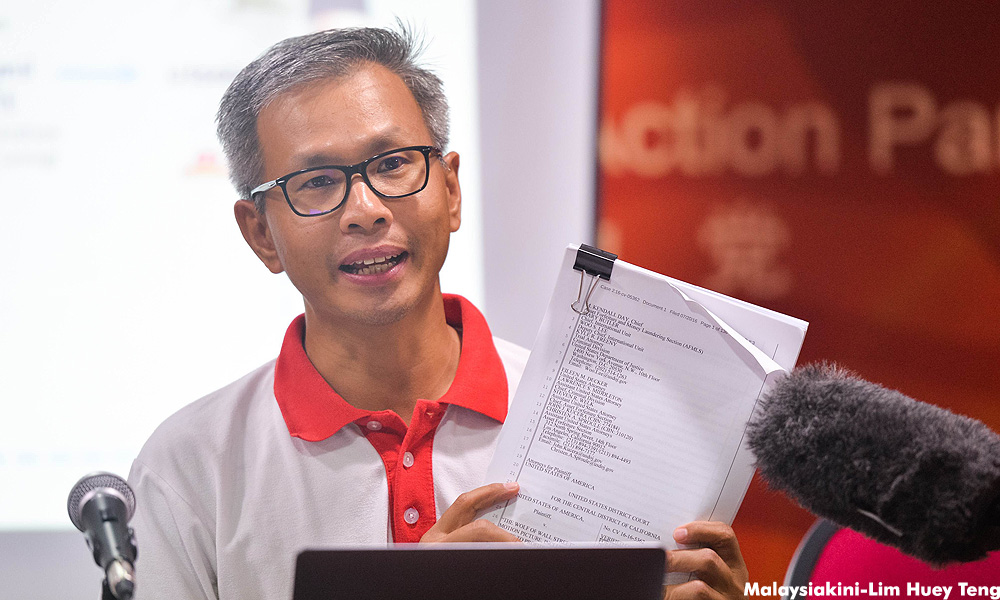
The Court of Appeal has relied on an older set of precedents in its judgment on DAP lawmaker Tony Pua's case that there are no absolute rights in the Federal Constitution, including the right to travel abroad, a lawyer said at a forum.
Malaysian Bar's constitutional law committee co-chairperson Surendra Ananth added that the issue of the right to travel has been contested in court since the 1970s.
"To say that the Court of Appeal's ruling was wrong would be too much.
"But what I can say is that the Court of Appeal had taken a very regressive approach," he told a forum on travel ban held at Malaysiakini's office in Petaling Jaya.
Surendra said while he disagreed with the appellate court's decision, it also did not materialise out of "thin air".
The points to be considered, he explained, was based on varying interpretations of Article 5 of the Federal Constitution which protects a person's right to life or personal liberty save for in accordance with the law.
Addressing the crowd of about 30 people, Surendra pointed out that each individual would have their own definition of what constitutes their personal liberty - ranging from defence against assault to their modesty to a range of rights including the right to travel abroad.
"So this is where the divide happens.
"One view is you read the words (of Article 5) literally. The other view is you read the words generally," he said.
Back in the 1960s and 1970s, he noted that the courts had adopted a more conventional and literal approach to interpreting the Federal Constitution.
Among others, he cited a judgment by the Federal Court in a legal challenge involving a man who was charged with a crime and contested the Home Ministry's decision to not renew his passport.
"At the time the court said sorry, the right to travel abroad is not protected under the Federal Constitution," he said.
This view was however expanded over the years to recognise a wider definition of personal liberty which includes the right to travel abroad, he noted.
Citing the latest decision, Surendra said the Court of Appeal was then confronted with two options.
"It could choose to follow one line of cases where 'I can give you the right' or it could follow the older cases which said the right is not guaranteed," he stressed.
Justice Idrus Harun, who was part of a three-member bench led by Justice Mohd Zawawi Mohd Salleh, in his 44-page judgment referred to the last page of Malaysian-issued international passports which states that a passport is the property of the government and may be withdrawn at any time.
In relation to Pua's appeal to challenge a 2015 travel ban against him, Zawawi said conditions accompanying the issuance of a passport shows that it only carries with it a privilege and not a right to travel overseas.
Pua was barred from travelling to Yogyakarta, Indonesia, on July 22, 2015, after inspector-general of police Khalid Abu Bakar informed the Immigration Department's director-general, via a letter dated July 15, 2015, that the DAP politician was being investigated under Section 124B of the Penal Code on an alleged activity detrimental to parliamentary democracy.
He was investigated as a witness and not a suspect.
The forum moderated by writer KJ John also featured activist Hishamuddin Rais, cartoonist Zulkiflee Anwar Ulhaque or Zunar and writer Mariam Mokhtar who joined the session via Skype.- Mkini


No comments:
Post a Comment
Note: Only a member of this blog may post a comment.